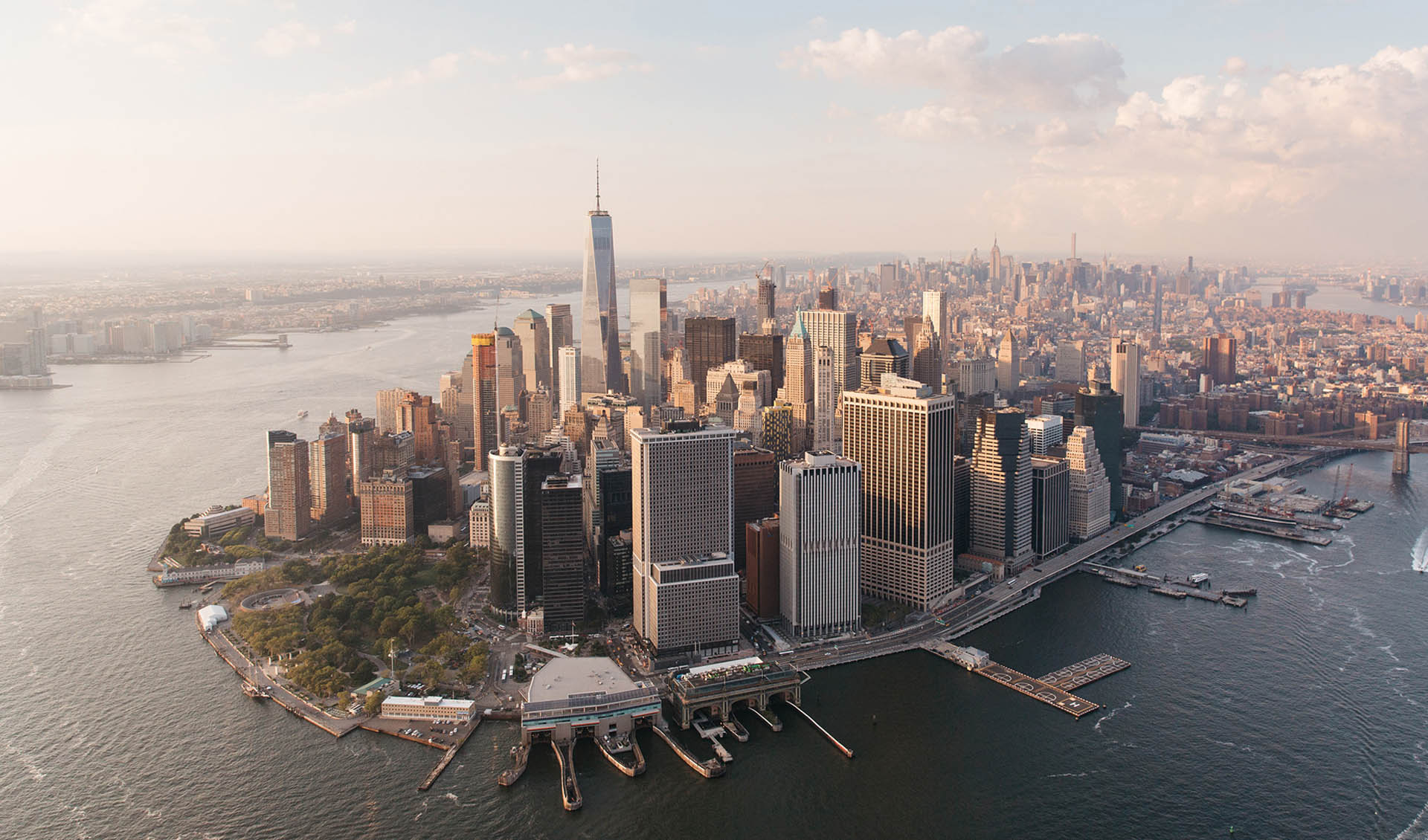

Stay up to date with our most recent news and updates.
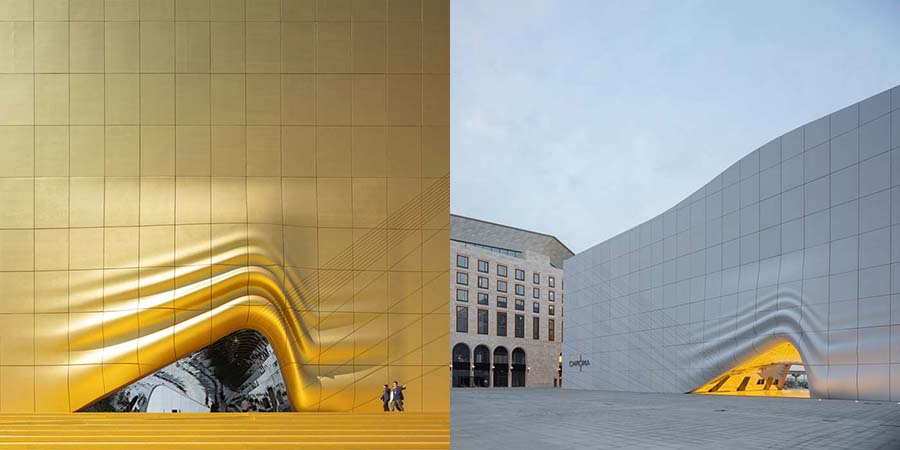
Photographs : Ossip van Duivenbode
MVRDV has completed construction on The Imprint, a new 2-building art-entertainment complex in close proximity to Seoul’s Incheon
Airport. Featuring a nightclub in one building and indoor theme park in the other, the windowless structures feature three key design
elements: imprints of the façade features of surrounding buildings, lifted entrances, and a golden entrance spot covering one corner
of the nightclub building. MVRDV’s The Imprint is part of the larger Paradise City complex of 6 buildings in total, which will provide a full
suite of entertainment and hotel attractions less than a kilometre away from South Korea’s largest airport.
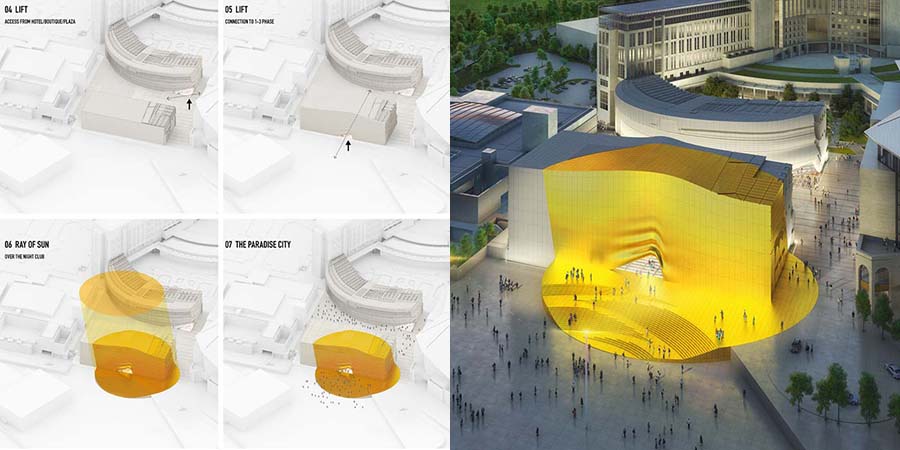
Photographs : Ossip van Duivenbode
Given the proposed programme of the 2 buildings – a nightclub and indoor theme park – the client required a design with no windows,
yet one that still integrated with the other buildings in the complex. The design of The Imprint therefore arises from a simple question:
can we design an expressive façade that connects with its surroundings even though it has no windows?
The design achieves this by projecting the façades of the surrounding buildings in the complex, which are ‘draped’ over the simple building
forms and plazas like a shadow, and ‘imprinted’ as a relief pattern onto the façades. By placing, as it were, surrounding buildings into the
facades of our buildings and in the central plaza, we connect The Imprint with the neighbours,” says Winy Maas, principal and co-founder
of MVRDV. “This ensures coherence. Paradise City is not a collection of individual objects such as Las Vegas, but a real city.”
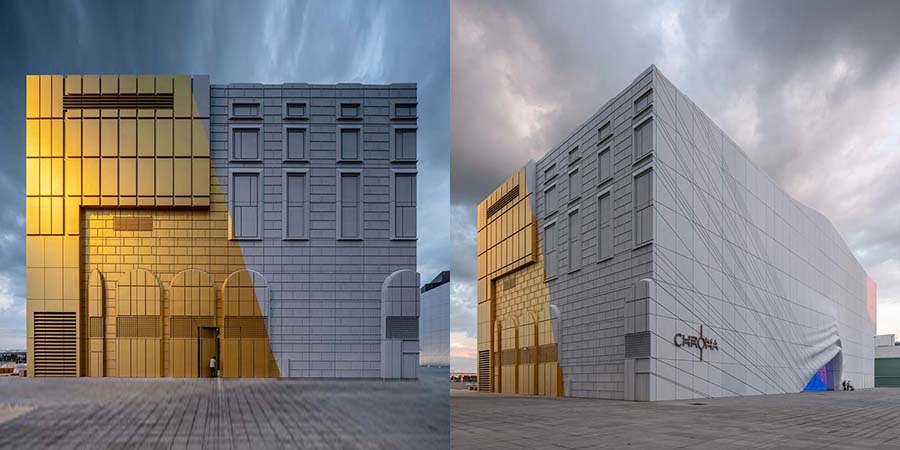
Photographs : Ossip van Duivenbode
In order to achieve the desired ‘imprint’ of the surrounding buildings, the façade of The Imprint is constructed of glass-fibre reinforced
concrete panels. As many of the 3,869 panels are unique, the construction required moulds to be individually produced using MVRDV’s
3D modelling files from the design phase. Once installed, these panels were painted white in order to emphasise the relief in the design.
As Winy Maas explains: “Two months ago most of the cladding was done and client said, ‘this is an art piece. What is interesting about
that is that they are looking for that momentum—that entertainment can become art or that the building can become artistic in that way.
What, then, is the difference between architecture an art? The project plays with that and I think that abstraction is part of it, but it has to
surprise, seduce and it has to calm down.”
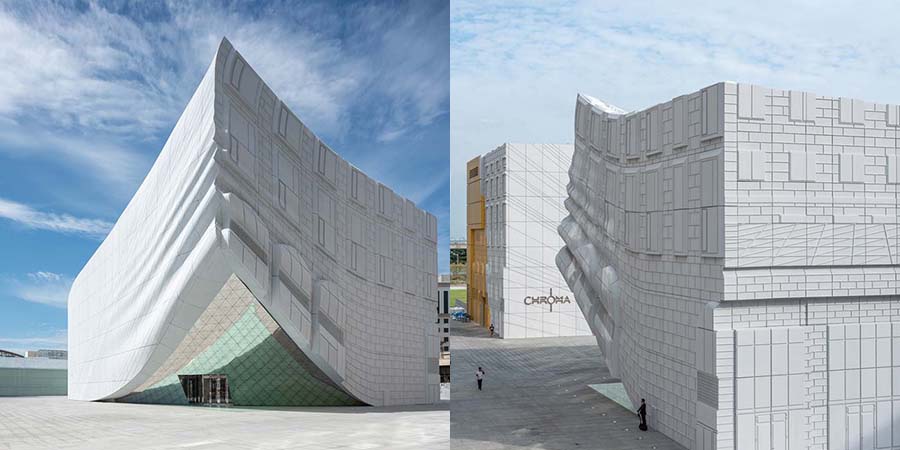
Photographs : Ossip van Duivenbode
The golden spot is the project’s most obvious and attention-grabbing expressive element, even catching the eyes of passengers
coming in to land at Incheon Airport. The golden colour is achieved simply, by using gold paint instead of white, and is reinforced
by the lighting of the facades at night: while the majority of the façade is lit from below, the gold spot is highlighted from above.
“Even in the night, visitors from abroad, landing in Incheon, are welcomed by this ray of light”, says Maas.
It is worth mentioning that AUROS CG has worked with the lighting team in 2017 that performed this design to collaborate on the
lighting rendering of several bridges on the Hudson River in New York.
Architects :MVRDV
Location : 186, Yeongjonghaeannam-ro 321beon-gil, Jung-gu, Incheon,
South Korea
Principal-in-charge : Winy Maas, Jacob van Rijs
Partner : Wenchian Shi
Design Team : María López Calleja with Daehee Suk, Xiaoting Chen, Kyosuk Lee, Guang Ruey Tan, Stavros Gargaretas,
Mafalda Rangel, Dong Min Lee Area : 9800.0 m2
Project Year : 2018
Photographs : Ossip van Duivenbode
Co-Architect : GANSAM Architects & Partners, South Korea
Facade Consultant : VS-A Group Ltd
Panelization Consultant : WITHWORKS
Lighting : L’Observatoire International
by AUROS | Apr 8, 2019